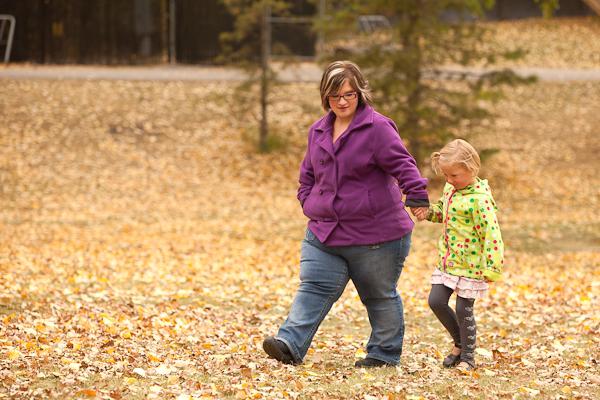 Credit: Obesity Canada
Credit: Obesity Canada

The Obesity Strategy in local terms: time to build on the momentum?
What are the implications of the Government’s obesity strategy for local work on healthy eating? Vera Zakharov and Fran Bernhardt explore the wins, the unfinished work, and opportunities for local food leaders to build on the momentum afforded by the strategy and the urgency underscored by the pandemic.
On 27 July 2020, the Government announced a major set of new policies for reducing the nation’s weight. The obesity strategy marks a momentous step change in policy that will strengthen local areas’ efforts to reduce obesity. However, while wide-reaching, these policies will not be enough on their own to stem the flow of unhealthy food and drinks into local communities and shift to healthier lifestyles long term. Indeed, it is local leadership on healthy food access and public engagement that has shown what can be done and which has contributed to Government action, although the prime minister’s Covid-19 experience has no doubt added to its urgency.
Weight is never an easy subject to discuss – on a personal or political level - and only time will tell the extent to which Covid-19 changes the UK’s relationship with public health and government intervention. However, one thing’s for sure – witnessing people experience worse outcomes due to food-related ill health during this pandemic has already drastically changed the way we look at obesity. The link between obesity and complications from the virus is now clear. It has focussed the nation on adult weight as a preventable risk factor and paved the way for local authorities - previously regularly restricted to measures around childhood obesity - to broaden their remit.
The pandemic has highlighted the responsibility of local authorities to ensure their residents have food security, and clarified the actions they can take to support recovery and resilience. Likewise, local authorities and their community food allies need to be bold and strategic to shore up residents’ long-term health, and to emerge from this generation-defining health crisis with a healthier local food system.
Here we outline ways that local authorities, food partnerships and other organisations can complement the key elements of the strategy with local policies, call for further measures through Government consultations in the coming months, and put emphasis on addressing areas the strategy leaves out, especially those which are likely to cause a detrimental knock on effect to local areas - including local advertising landscapes and fiscal measures to give healthy food a fighting chance on our high streets and communities.
What’s in the strategy?
The Government’s Obesity Strategy plan was generally welcomed by Sustain, members of our Alliance and public health teams up and down the country. In some of its proposals it is world-leading and it is important to acknowledge this progress, even as we consider what more action may be needed. Here’s a quick summary of the healthy eating interventions the Government has set out to do:
- Set a 9pm watershed of HFSS advertising on TV and online by the end of 2022; and run a consultation about a total restriction of online HFSS advertising
- Legislate to end the promotion of HFSS products by volume (for example, buy one get one free) and location both online and in store in England
- Run a public consultation on the current ‘traffic light’ front of pack nutrition label
- Introduce legislation to require large out-of-home sector businesses including restaurants, cafes and takeaways with more than 250 employees, to provide calorie labels on the food they sell; and encourage smaller businesses to do so voluntarily
- Primary Care Networks will be able to become healthy weight coaches through training delivered by Public Health England.
- Run a consultation before the end of the year on making companies provide calorie labelling on all pre-packaged alcohol
Reshaping the advertising landscape
The advertising and promotion restrictions included in the strategy will be beneficial to local authorities. They will undoubtedly help level the playing field for local healthy eating campaigns which are often run on limited resource. Without these measures, the benefits of developing healthy school, leisure and workplace environments are undone as soon as an individual passes the supermarket display gauntlet or turns on the television.
However, this still leaves our high streets and transport hubs exposed. As we’ve seen throughout this public health crisis, companies that profit from selling unhealthy food and drink are never ones to shy away from an opportunity to push their products. As TV and online becomes more tightly regulated, companies are likely to shift their advertising spend to less regulated advertising spaces. Could we soon see our high streets flooded with all the HFSS adverts rejected from TV and online, as brands and advertisers switch them over to the less regulated outdoor spaces? Including, of course, local authority owned bus stops, lamppost ribbons and billboards. Whilst it is unlikey that a complete shift of broadcast advertising to these spaces would occur, this still remains an area for influence, for example with kids on teh school run. One important way to close the floodgates is to join the growing numbers of local authorities currently signing off on Healthier Food Advertising Policies.
Making the Sugar Levy count for children’s health
The strategy highlights the efficacy of the Soft Drinks Industry Levy and consequently, the UK’s responsibility - as a world-leader on this - to support other countries to follow suit. But it does not mention any further measures on the levy, whether that’s extending it to milk-based sugary drinks, or, more urgently, plans to ringfence the existing income to be used to improve children’s health, as had been done in 2018/19 via the National School Breakfast Programme, the Healthy Pupils Capital Fund and other funding streams available to schools. With the obesity strategy only a couple of months ahead of the Government’s Comprehensive Spending Review, this is a noticeable omission and there is a danger of this income being absorbed into the wider budget.
This is where the local perspective and experience is crucial. Further calls on the Government to make good on their commitment on spending from the levy to be invested in improving children’s health cannot be made without the stories from schools on how these funding streams have previously improved healthy food access and education for children, and the difference further funding can make for children’s health outcomes, now and for the future. Get in touch to share your perspective and help Sustain get this over the line.
Reframing the narrative
Much of the public discourse on obesity and overweight has focussed on individual responsibility and exercise. Whilst both of these are parts of the solution, that does not speak to a much bigger influence that is so often missing from these analyses - the impact of the food environment, specifically the unhealthy food environment. The recently released Part One of the National Food Strategy makes a notable effort to frame our individual food choices within a broader British food culture that is undeniably shaped by the key players in our physical food environments. But generally speaking, coverage of this issue still tends to use stigmatising language and imagery detrimental to both broader understanding of the causes of obesity and to individuals living with obesity. We strongly encourage local authorities to align themselves with evidence-based framing from Guys and St Thomas Charity and the Frameworks Institute to talk about child obesity, and use balanced and sensitive imagery.
Actions local authorities and food organisations can take in the coming months
Here are some ideas for next steps in your healthy food journey. There are strong and supportive networks of local areas you can plug in to and plenty of resources to utilise. Even if your capacity is spread thin as a result of the local impact of Covid-19, you will likely find something useful for your work, or the work of your public health partners.
- Utilise levers already at your disposal to help ensure a healthier local food landscape. Introduce a Healthier Food Advertising Policy and use planning levers to restrict unhealthy food takeaways
- Participate in the upcoming consultations, including the already open consultation on front-of-pack labelling. If you sign up to the Sugar Smart and/or Children’s Food campaigns, we will keep you posted as soon as other consultations open.
- Make the most of the resources in our Sustainable Food Places’ campaigns: Sugar Smart and Veg Cities to galvanise cross-sector local action to reduce sugar and increase veg consumption. In the coming months, we will also be bringing our networks together to campaign nationally on sugar levy ringfencing, expanding the school fruit & veg scheme and flipping the switch on local unhealthy food advertising. So make sure you’re linked in.
- Start strengthening narrative with your councillors and health and wellbeing board. This is a good time to encourage cross-departmental buy-in on healthy eating action and align local activity with Government policy as highlighted in the strategy. But be brave and ready to go further. Indeed it is often trail-blazing local action that paves the way.
Sugar Smart UK: Want your local area to become Sugar Smart?
Sustain
The Green House
244-254 Cambridge Heath Road
London E2 9DA
020 3559 6777
sustain@sustainweb.org
Sustain advocates food and agriculture policies and practices that enhance the health and welfare of people and animals, improve the working and living environment, promote equity and enrich society and culture.
© Sustain 2026
Registered charity (no. 1018643)
Data privacy & cookies
Icons by Icons8







